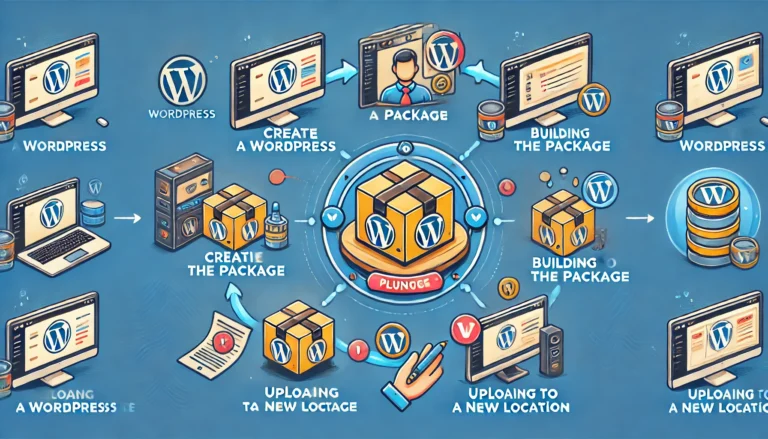WordPress and GDPR Compliance

What You Need to Know about General Data Protection Regulation
Introduction to GDPR
When it comes to making sure your website is compliant with General Data Protection Regulation (GDPR), there is a few things that you can do, and a few things you just need to be mindful about.
What is GDPR
(GDPR) is a pivotal piece of legislation that came into effect on May 25, 2018, across the European Union. Designed to address the new challenges of data privacy in the digital age, it replaces the previous data protection directive from 1995.
The aim is to provide web users with privacy rights, security, and it aims to make websites compliant by establishing stringent data protection requirements for all companies that handle the personal data of EU citizens.
Many Websites will handle various types of personal information from names, email addresses, and bank details to social media posts, IP addresses, or medical information.
That’s in itself is fine however it also gives the opportunity in the possibility of miss-handling this information.
How does GDPR Affect you as a website Owner?
For websites, the importance of GDPR compliance cannot be overstated.
Websites collecting data from EU citizens must obtain explicit and open consent from users before processing their data, clearly explain how the data will be used, and allow users to easily access, rectify, and erase their personal information.
All data taken from any customer, or user must be taken by the website owner in a responsible and legal manner.

Key GDPR Requirements for WordPress Sites
If you are a WordPress website owner then Great news! To become compliant in regards to this it’s a relatively easy and straightforward process. The first thing is obviously honesty, with all the best processes in the world on your website if you have bad intentions to misuse somebody’s personal data any process any website is almost irrelevant.
However if you are an honest person and we wish to run your website as it should be, like a business then there are plenty of plugins and even a few services I will recommend to get this job done.
WordPress ensures that website owners have access to features necessary for obtaining user consent before collecting data, securely storing personal information, and enabling users to easily access, modify, or delete their data upon request.
Always implement clear privacy policies, transparent data collection practices, and secure data processing methods. Website owners must also be prepared to respond to data breaches promptly and effectively.
In essence, WordPress offers the infrastructure and tools needed for GDPR compliance, but it is ultimately the responsibility of website owners to utilize these resources correctly.
Ensuring compliance involves a proactive approach to privacy, security, and data management, reflecting the GDPR’s emphasis on protecting individual rights in the digital age.
Practical Steps for WordPress Sites to Become GDPR Compliant
- Updating Privacy Policies: The first step is to Create, review and update privacy policies to ensure they clearly outline the types of personal data collected, the purpose of collection, data storage practices, and users’ rights regarding their data. The policy should be easily accessible and written in clear, straightforward language. A good place to but the link for these pages are on the footer of each page.
- Implementing Consent Mechanisms: WordPress sites must implement mechanisms to obtain explicit consent from users before collecting any personal data. This includes consent for cookies, subscriptions, and any form submissions. Plugins can help manage this process by providing customizable consent forms and keeping records of consent.
Note: When I collect names and emails for forms I usually include Terms and conditions which feature privacy policy within that in the actual form. - Tools and Plugins for GDPR Compliance: Numerous WordPress plugins are available to assist with GDPR compliance. These tools can help with cookie consent management, data access and deletion requests, and ensuring that data collection practices are transparent and secure. Some popular plugins include WP GDPR Compliance, Cookie Notice for GDPR, and Compliant.
By taking these steps, WordPress site owners can move towards GDPR compliance, ensuring they respect user privacy and adhere to legal requirements.
Regularly reviewing and updating compliance measures is also crucial as both technology and regulations evolve.

WordPress Plugins for GDPR Compliance
GDPR Privacy Notice Generator
Here is my favourite tool I use for creating the Privacy Policy File
Privacy Notice Generator
WP GDPR Compliance
This plugin assists with the general data protection regulation compliance, offering tools for managing consent, data access requests, and more.
- WordPress Plugin Directory: WP GDPR Compliance
Cookie Notice & Compliance for GDPR / CCPA
Provides a simple way to show your website’s compliance with the EU Cookie Law/GDPR/CCPA, including options for cookie consent and customization.
- WordPress Plugin Directory: Cookie Notice
Complianz | GDPR/CCPA Cookie Consent
A plugin offering support for GDPR, DSGVO, CCPA, and PIPEDA compliance through dynamic cookie notices and tailored cookie policies, utilizing its integrated cookie scanning feature.
- WordPress Plugin Directory: Complianz
GDPR Cookie Consent (CCPA Ready)
Initially focused on cookie consent, this plugin has expanded its features to help websites become GDPR and CCPA compliant, addressing various aspects of the regulations.
- WordPress Plugin Directory: GDPR Cookie Consent
WP AutoTerms
Helps you create legal agreements for your website including Privacy Policy, Terms & Conditions, and Cookies Policy. It also includes features to help with GDPR compliance.
- WordPress Plugin Directory: WP AutoTerms
Data443 GDPR Framework
Offers a comprehensive set of tools to help manage user consents, privacy preferences, and data access requests, making it easier to comply with GDPR.
- WordPress Plugin Directory: Data443 GDPR Framework
These plugins and services can significantly make your life a lot easier the burden of GDPR compliance by automating and managing many of the requirements directly within your WordPress site.
However, it’s important to review each plugin’s features and ensure they meet your specific needs.
GDPR Compliance as an Ongoing Process
Making sure your WordPress website is compliant when it comes to gdpr isn’t something you need to necessarily worry about, if you keep organised and stay ahead of the curve you allow our ways have the right processes in place.
By simply adding a privacy policy on your website, usually in the footer, the vast majority of what is required is then covered.
what you do need to keep in mind is with the size of the business and the website comes more responsibility, especially in terms of dealing with increased amounts of personal data.
At this point it is definitely then worth seeking potential experts and professional help when it comes to gdpr, but until that point just cover the basics, make sure your processes adhere to all the rules and regulations, and above all just remain honest and run your business like you wanted to succeed long-term







